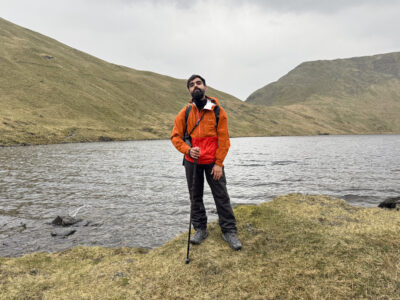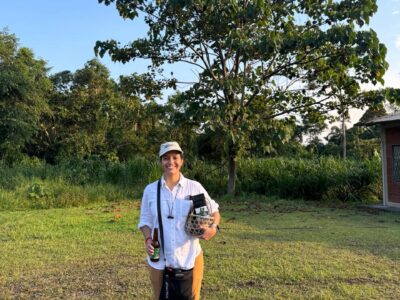
1. What drew you to the Master of Public Administration in Environmental Science and Policy?
It was extremely difficult to find a program which equally incorporated both science and policy and the MPA-ESP program has the perfect combination. The program is prestigious and well-known and many employers seek to hire the graduates. As was the case with many other students, I enrolled in this program to improve my chances in acquiring a job I desire.
2. What were you doing before you started the program?
Prior to applying to this program, I was conducting research in the field of microbiology with the Hudson River Foundation, while exploring environmental EU regulations in Copenhagen and researching glaciology in Iceland.
3. What area of environmental policy and management are you most interested in?
I am most interested in International environmental guidelines and regulations. I am also interested in international environmental negotiations at the United Nations.
4. What skills and tools do you hope to acquire through the program?
I hope to advance my management and leadership skills as this program has a strong emphasis on project management. I am also seeking to better my understanding in policy analysis and design.
5. What is your favorite class in the MPA-ESP program so far, and why?
It is very difficult to choose one class as a favorite since most of the classes regardless of my scientific or policy background where extremely useful and challenging.
If I must choose a science course, I would choose Toxicology since this class surpassed my expectations in environmental assessments and offered me in-depth understanding of risk analysis and utilizing current national and international tools to conduct my own assessments.
Policy-wise, I would definitely choose the Workshops in Applied Earth Systems Management. This class offered me the chance to manage a group of exceptional students to conduct analysis for a real bill presented to the senate. This process equipped me with skills in policy design, and pushed me outside of my comfort zone.
6. How has collaborating with your fellow students in class projects benefited you professionally and personally?
The program has a very strong emphasis on working in groups; I’ve had prior experience through my prior degree in working in groups but in the MPA-ESP program I learned how to better understand my role within a team, to learn when to lead and when to step back. The group projects I participated in where all modeled after real life team models, whether I choose to work in consultancy, government or the private sector.
7. Beyond the classroom, what, if any, extracurricular sustainability-related activities have you engaged in with your fellow Environmental Science and Policy students?
I had the opportunity to be elected president of student government for ESP, this opportunity allowed me to form close relationships with my colleagues and oversee an extremely dynamic process of managing, creating events and programs for the entire year on behalf of our class.
8. How do you intend to utilize your degree from the MPA-ESP program to further your career and to make an impact?
I intend to utilize my degree to further the protection of human rights and the environment through efficient policy design and necessary international agreements.
***
Students in the MPA in Environmental Science and Policy program enroll in a year-long, 54-credit program offered at Columbia University’s School of International and Public Affairs, in partnership with the Earth Institute.
Since it began in 2002, the MPA in Environmental Science and Policy program has given students the hands-on experience, and the analytical and decision-making tools to implement effective environmental and sustainable management policies. The program’s 682 graduates have advanced to jobs in domestic and international environmental policy, working in government, private and non-profit sectors. Their work involves issues of sustainability, resource use and global change, in fields focused on air, water, climate, energy efficiency, food, agriculture, transportation and waste management. They work as consultants, advisers, project managers, program directors, policy analysts, teachers, researchers, and environmental scientists and engineers.
Visit our website for more information: http://mpaenvironment.ei.columbia.edu/



